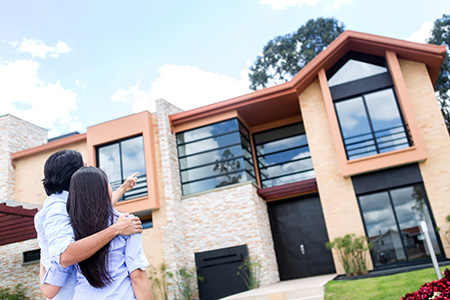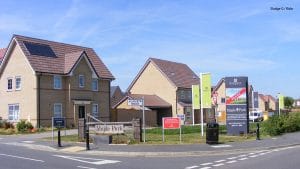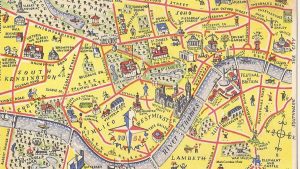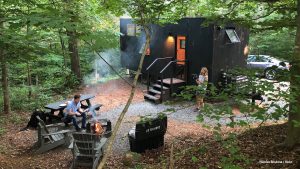How to decide where to live next?
 Deciding where to move to can be quite daunting, so do you make a calculated decision or stick a pin in a map?
Deciding where to move to can be quite daunting, so do you make a calculated decision or stick a pin in a map?
A pros and cons list is always useful when deciding where your new home will be so here are some things for you to consider when making the final decision.
What must your new home or area give you?
There will be certain things that your new home must provide you with in order to make it worthwhile moving there. Decide what your priorities are and then which home or area best fits those priorities.
Things that you may consider important when choosing a new home:
- Employment opportunities
- Being nearer family
- Good schools
- More bedrooms
- A garden
- Being in the countryside
- Being nearer the city
- Commuting times
- Public transport
Things to Consider When Choosing a New Place to Live
- The price of the property or rental costs
- The cost of living
- Is moving to the city or the countryside such a good idea?
- Is moving to be near family or friends a good idea?
- What type of home do I need?
- Is the area future proof?
- Is location or home more important?
- Should I rent or buy a property?
- Is this a forever home?
- What if my partner does not want to move?
- Will Moving home make me happier?
The price of the property or rental costs
Using a property price search site such as www.home.co.uk or www.zoopla.co.uk you can soon discover the homes that are within your price range. Both of these sites offer you the opportunity to see average rental and purchase prices within chosen areas.
This will enable you to quickly exclude places that are outside of your budget.
The Cost of Living
Once you have bought or rented a property you still have to pay bills and live. It is important to take the cost of living into consideration and a site such as www.numbeo.com allows you to compare the cost of living between your current area and the new area.
Is moving to the Countryside or City a Good Idea?
Is moving to a rural location a good idea? It seems idyllic doesn’t it, living in the countryside, looking out of your window at miles upon miles of rolling countryside, a garden full of vegetables and flowers?
But have you considered what it will be like living in the countryside? Fetching wood from the woodpile in the freezing cold or roads impassable due to snow, hours upon hours of backbreaking gardening, buses rarer than hens’ teeth, or having just a single village shop.
Will your kids be bored with nothing to do as they get older? What will you do as you get older and cannot drive or walk to the shop?
And what about moving to a city. Being in the heart of the action usually means high property prices and a high cost of living. Then there are the social issues that you may face living in a big city, crime, noise, congestion, and pollution.
There are lots of things to consider about a total change of lifestyle and location. Make a list of all the pros and cons to see if it is the right thing to do for you.
Is Moving to Be Near Friends or Family a Good Idea?
Moving just to be near friends or family is an often cited reason for moving home.
If you are moving to care for elderly relatives for example that may be a good enough reason to move.
But often people will move to be near friends or family and then that friend or family member moves away. So how rooted are the people you want to move near to in that area? Is there any foreseeable reason why they would move in the future?
What Type of Property Would be Best For You?
We often get a fixed idea in our mind of which type of property we should move into, be it a house, bungalow or flat. And often we have an idea in our head of the type of people who would live in such places and the sorts of the location where you would find them.
But bungalows can offer extremely versatile accommodation and often come with more land than a house. Flats can be a cost-effective option to get you into your ideal location and houses can be expensive to maintain.
There can be a huge difference in what you get for your money between the different styles of a home so keep your options open and you may just find the perfect home.
When hunting for a new home it is a good idea to be as flexible as possible in the type of home you are looking for.
Further reading: House, Bungalow or Flat. Which is best for you?
Is the Area Future Proof?
By that we mean, if this is a long term home for you, will the area still meet your needs in 10 years’ time.
Moving to a certain area now may meet your immediate needs but what if the industry you work in packs up and leaves the area, or the lush green field around your home is sold off for a new housing estate?
Check out what the local councils’ long term home building strategy is, what local investments are being made, and how much your industry is investing in the area.
Find out more about How to future proof your next home move
Is location or property more important?
 Do you buy the perfect home in a not so desirable postcode or is having the right postcode with a less than ideal home the right choice for you?
Do you buy the perfect home in a not so desirable postcode or is having the right postcode with a less than ideal home the right choice for you?
There are many considerations to take into account when you are looking to move home and even after you have made your pros and cons list of which would be the best place to move to, your gut feeling of which home you would be happiest in is often the best choice.
There are a list of 31 things to consider when trying to choose between location and home in this guide: Which is More Important: Location or House? 31 Things to Consider.
Should you Rent or Buy a Home?
Would it be better to rent or buy a home? This will often come down to personal circumstances and only you can really make the final decision, but here are some things to consider if you are undecided as to whether to buy or rent your next home.
- Rent a home to get to know an area. It often makes sense to rent a home in an area that you would like to move to. Then if the area was not as good as you expected then you can move again.
- Live in the area you want now. You will be able to afford to live in an area you might otherwise not be able to afford.
- Save money. There will not be the costs of deposit, solicitors, surveyors, and stamp duty to worry about if you are renting. Usually, just a deposit will apply.
- No maintenance costs. If the boiler needs replacing in your own home you will pay for it. In rented accommodation, it is the landlord’s responsibility to cover any maintenance costs usually.
- No years of saving for a deposit. Getting enough money together to pay a deposit to buy a house can take years. When renting 1-3 months’ rent is the usual deposit.
- No worry about mortgage rates. If you buy a home, the interest rates can change which makes it harder to budget. Rents are usually fixed for the duration of your agreement.
- You may not be able to decorate. A downside to renting is that you may not be able to decorate which can affect how you feel about the home. Redecorating a property is a great way to make it feel like your home.
- No certainty. If you really love the place you rent there is no guarantee that the landlord will extend your lease beyond the initial agreement.
- Rent could rise year on year. You are at the mercy of the landlord as to what increase in rent applies.
- No equity. Although you can invest the money you save by not purchasing a home you will not have any equity in a property.
- Invest in savings or property? You may get a better return on the money you put in a savings account than on gambling that the housing market prices will rise. You could lose substantial sums of money if the property market crashes.


 Many regions of the UK have concentrations of certain industries and many towns and cities are emerging as the centre of new up and coming industries, mainly in the tech and creative sector.
Many regions of the UK have concentrations of certain industries and many towns and cities are emerging as the centre of new up and coming industries, mainly in the tech and creative sector. So for whatever reason, you have to move home but what happens if your partner does not want to move? Or your partner needs to move for a job relocation for example and you don’t want to?
So for whatever reason, you have to move home but what happens if your partner does not want to move? Or your partner needs to move for a job relocation for example and you don’t want to?


















